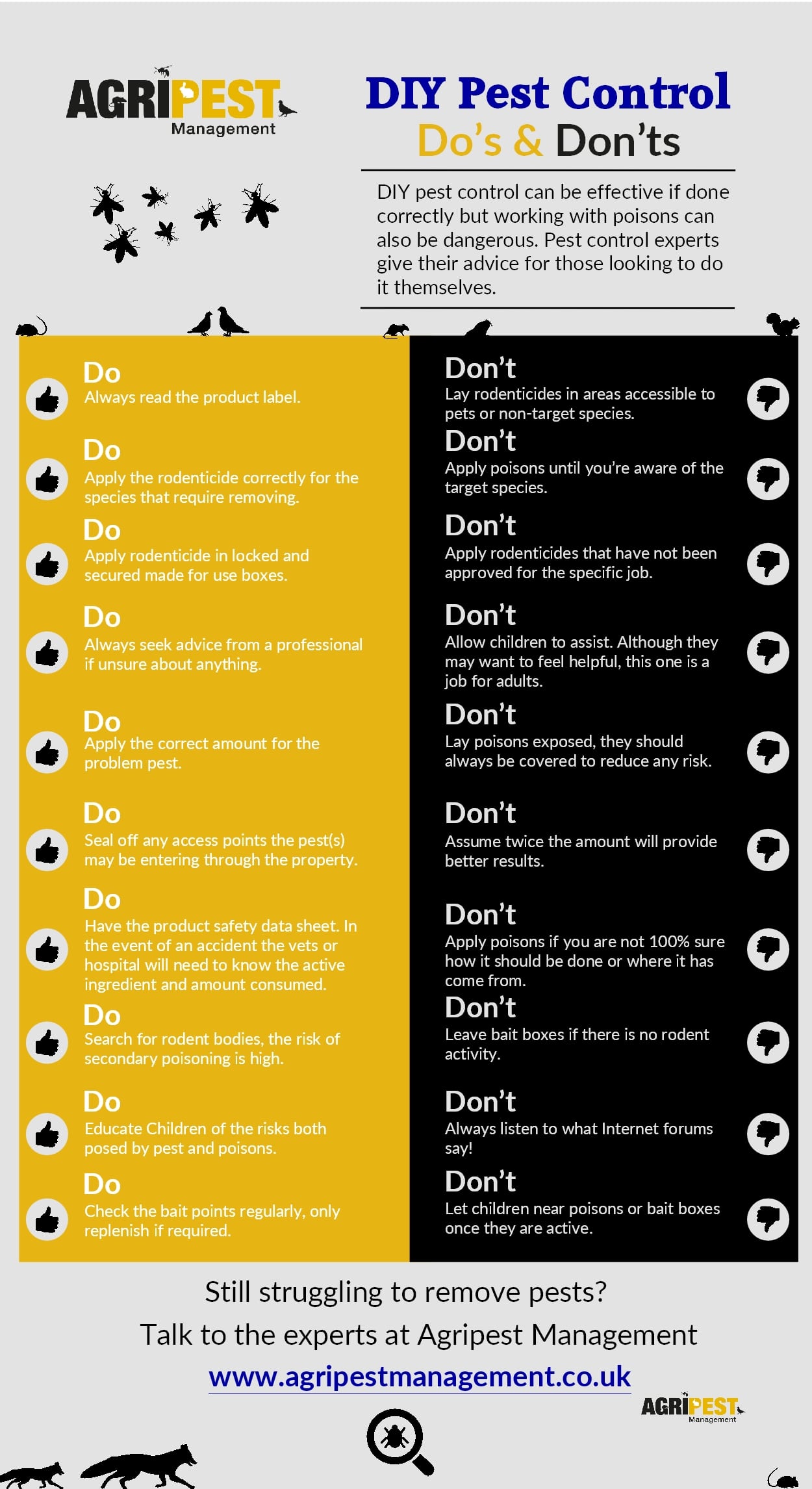Past The Spray: Exploring Advanced Techniques Utilized By Parasite Control Experts
Past The Spray: Exploring Advanced Techniques Utilized By Parasite Control Experts
Blog Article
Write-Up Writer-Tran Stewart
Are you tired of relying solely on sprays to deal with parasites in your house or workplace? While sprays can work, pest control experts have developed innovative techniques that surpass simply splashing chemicals.
These techniques not only give more effective and durable remedies, yet also focus on lessening making use of harmful pesticides. By discovering these innovative strategies, you will certainly find a whole new world of bug control techniques that are not only reliable, yet likewise eco-friendly.
So, are you ready to take your parasite control video game to the following level?
Integrated Pest Management (IPM)
If you're seeking a reliable and environmentally-friendly method to pest control, Integrated Parasite Monitoring (IPM) is the solution you need. IPM focuses on long-term avoidance and management of pests, rather than just relying upon chemicals. This technique thinks about the particular requirements and behaviors of insects, as well as the surrounding setting.
By utilizing a combination of methods such as organic control, habitat control, and targeted chemical use, IPM aims to minimize the reliance on chemical therapies and reduce damage to non-target microorganisms.
cockroach control services of IPM is checking and identifying insects precisely. This includes routinely examining and analyzing the pest populace, along with determining the details types present. By understanding the biology and actions of insects, bug control specialists can develop targeted methods to interrupt their life process and lower their numbers.
An additional essential component of IPM is making use of non-chemical control methods whenever possible. This can consist of physical barriers, such as installing screens or sealing fractures and openings, to stop insects from getting in buildings. Furthermore, cultural practices, like appropriate sanitation and waste management, can aid get rid of parasite food sources and reproducing premises.
When pesticides are essential, IPM focuses on utilizing them deliberately and as a last hope. This suggests picking the least hazardous and most efficient option, using it precisely and only to impacted areas, and complying with all safety standards. By reducing chemical usage, IPM decreases the potential threats to human health and wellness and the environment.
Biological Control
To better enhance the effectiveness of Integrated Bug Monitoring (IPM), the following subtopic we'll explore is the technique of organic control. https://www.fox61.com/article/news/local/outreach/awareness-months/animal-control-officer-gives-tips-to-pet-owners-after-3-dogs-die-at-berlin-kennel/520-0d70f95a-1988-40b7-8331-bd047372e072 utilizes all-natural predators or parasites to manage insects.
Here are four essential facets of biological control:.
1. Introduction of all-natural enemies: In this method, valuable insects or microorganisms are presented to the location infested with pests. These natural enemies take advantage of the bugs, helping to minimize their population.
2. visit the next post of natural enemies: Rather than introducing brand-new microorganisms, this approach concentrates on developing an appropriate atmosphere for existing advantageous insects. This can be attained via supplying food, sanctuary, and water sources.
3. Augmentation: Below, the variety of all-natural enemies is boosted artificially by breeding and releasing them into the infested location. This helps to swiftly minimize the pest population.
4. Push-pull approach: This strategy integrates repellents and attractants to control the habits of pests. Repellents push parasites away from crops, while attractants tempt them in the direction of trap plants or locations where they can be quickly regulated.
Habitat Adjustment
Environment alteration plays an important function in pest control by modifying the setting to inhibit parasite infestations. By making changes to the physical attributes of an area, you can create an inhospitable atmosphere for pests, making it harder for them to make it through and flourish.
One usual method of environment alteration is eliminating or decreasing prospective food resources for bugs. This can consist of proper waste monitoring, sealing containers, and cleaning up food crumbs.
In addition, getting rid of or minimizing areas of standing water can help manage bugs like mosquitoes.
Changing the landscape by cutting trees and shrubs far from structures can likewise stop parasites from accessing your building.
Verdict.
So there you have it - the innovative techniques made use of by parasite control experts surpass simply splashing chemicals. Integrated Insect Management (IPM) integrates different methods to efficiently manage insects, while organic control uses natural adversaries to keep bug populaces in check.
Environment alteration likewise plays a vital duty in stopping bug infestations.
Did you understand that according to a study, applying IPM strategies reduced chemical usage by approximately 71%? This not just protects our health and wellness and the environment but also saves cash in the future.
